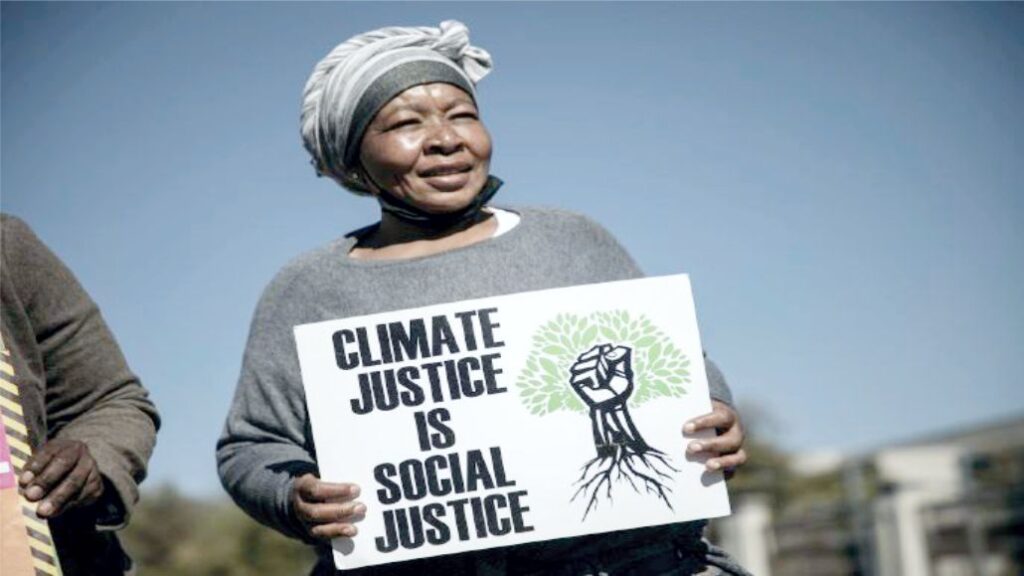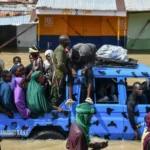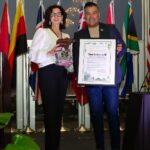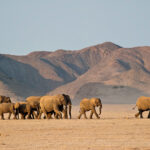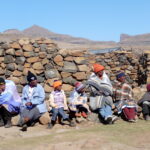As climate change continues to disrupt lives and livelihoods across Africa, women are emerging as powerful agents of change, transforming challenges into opportunities through advocacy, innovation, and resilience.
March, celebrated globally as Women’s History Month, serves as a reminder of the critical role women have played in demanding change and challenging the status quo. This year, Greenpeace Africa, an independent environmental campaigning organisation, brought together inspiring voices to spotlight how African women are shaping the climate conversation, not as victims but as leaders in solutions.
Women Leading the Charge
From grassroots activism to global platforms, African women are taking bold steps to protect the environment, secure Indigenous land rights, and push for climate action. The legacies of pioneers like Wangari Maathai, the Nobel Prize-winning founder of the Green Belt Movement, and Vanessa Nakate, Uganda’s climate justice advocate, continue to inspire new generations.
Dr. Oulie Keita, Executive Director at Greenpeace Africa, emphasised how adversity can be a catalyst for growth. “I’ve learned that adversity is not just an obstacle. It’s a catalyst that, when met with resilience and reflection, transforms challenges into opportunities for self-discovery and growth. African women are redefining what’s possible through policy reform, digital innovation, and community-driven solutions.”
Cultivating Young Women Climate Leaders
The barriers for young women entering the climate space—lack of funding, tokenism, and restrictive policies—are significant. But Jennifer Olachi Uchendu, founder of Sasty Vibes, believes these challenges can spark creativity. “It’s important to identify our power and contributions. By experimenting, learning from failure, and fostering mentorship, we can turn barriers into opportunities. Women need support beyond International Women’s Day; they must be central to decision-making every day.”
Dr. Susan Chomba, a Kenyan environmentalist, reinforced the need for action beyond research. “For Africa, we need urgent climate action—whether it’s driving finance, shaping policy, or empowering women’s voices. Those of us already in these spaces must open doors for more young African women to become scientists, researchers, and leaders.”
Women Shaping Africa’s Energy Future
Energy poverty disproportionately affects women and girls, yet their voices are often excluded from energy policies and solutions. Cynthia Moyo, Climate and Energy Campaign Lead at Greenpeace Africa, stressed that closing the gender gap in the energy sector is crucial. “We cannot solve a global crisis while excluding most of the world from the conversation. Equal participation of women is essential for a just and sustainable energy transition.”
For Nonhle Mbuthuma, founder of the Amadiba Crisis Committee, land is at the heart of climate justice. “Mega projects disguised as development often exploit land and disrespect nature. Our communities mobilise through education and awareness, ensuring that women, who are at the forefront of land stewardship—are informed and empowered to resist exploitation.”
The role of digital access as a tool for climate leadership
Priscilla Chomba, Chief Technology Officer at Greenpeace International, highlighted the digital divide as a barrier to inclusive climate action. “Three billion people lack internet access, many of them women and rural populations. We’re missing out on their knowledge and contributions. Expanding internet access and providing tailored training will allow women to use technology effectively in the fight against climate change.”
Despite the challenges posed by climate change, African women are demonstrating that solutions are within reach. Their stories of resilience, innovation, and leadership are turning climate concerns into opportunities for empowerment and global solidarity.
As the world grapples with the climate crisis, these women are proving that leadership, determination, and inclusivity are key to building a sustainable future.

